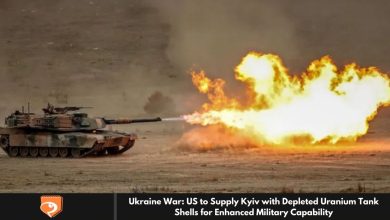Nursing Home Residents in Donbas: The Urgent Fight for Evacuation Amid Conflict
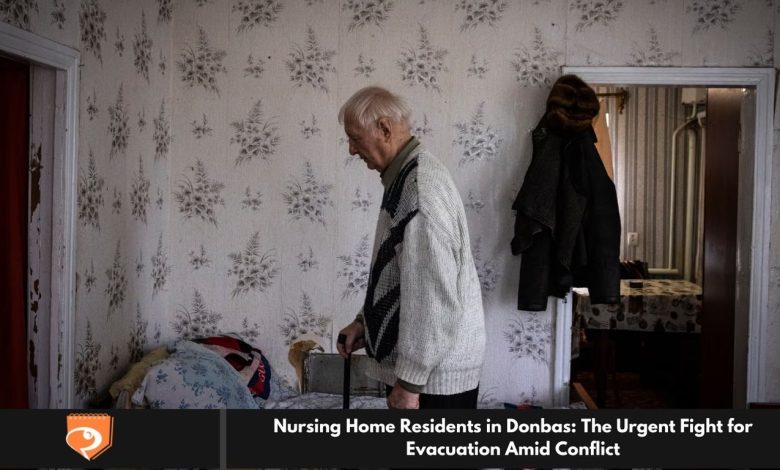
In the sleepy village of Chasiv Yar, nestled within Ukraine-controlled Donbas, life for 30 elderly residents teeters on the edge of catastrophe. Surrounded by conflict, these nursing home residents face the dual threats of war and displacement, highlighting the deepening humanitarian crisis in this war-torn region.
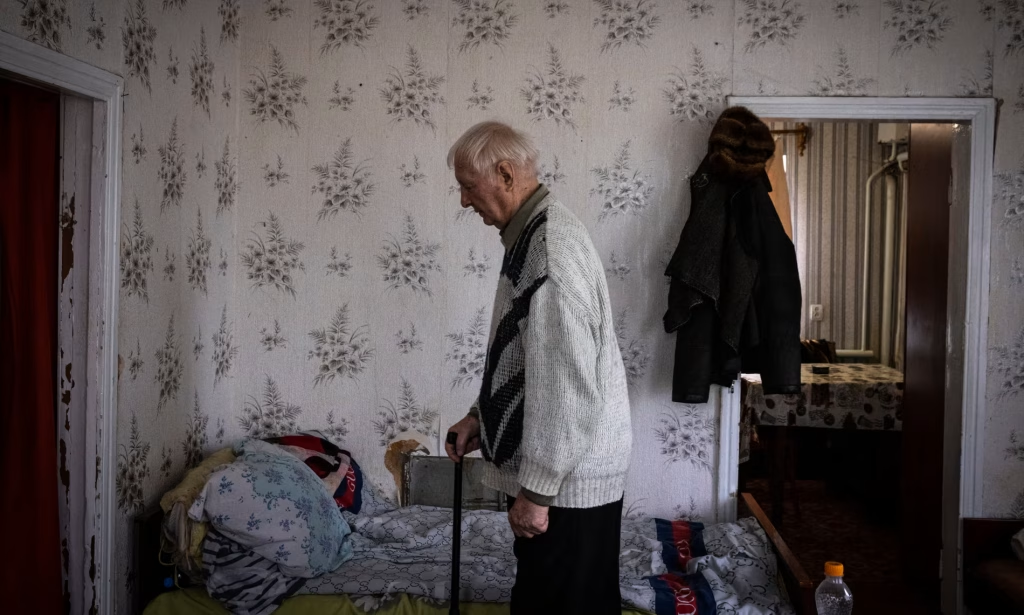
Their nursing home, a charitable sanctuary managed by Ievhen Tkachov and his family, has become a lifeline for the vulnerable. Yet, with Russian forces encircling the area, the urgency to evacuate grows by the day. Each resident’s story underscores the resilience and heartbreak of surviving amidst war.
As the situation deteriorates, the courage of these individuals and their caretakers reveals the profound impact of conflict on the most vulnerable. Their fight for safety and dignity stands as a testament to human endurance and the importance of global support.
The Setting: Life in Chasiv Yar
More than 100,000 Russian troops surround Chasiv Yar, and while life remains quiet for now, tensions simmer as a major battle looms. This precarious calm leaves the nursing home residents on edge, awaiting evacuation to safer areas in western Ukraine.
The Nursing Home: A Lifeline for the Vulnerable
For over a decade, Ievhen Tkachov and his family, devout Pentecostalists, have run charity projects to aid vulnerable individuals in the Donetsk region. Their efforts began with summer camps for children and evolved into providing care for those with addiction issues. Today, their nursing home is part of Proliska, a network of charitable projects supported by the UNHCR.
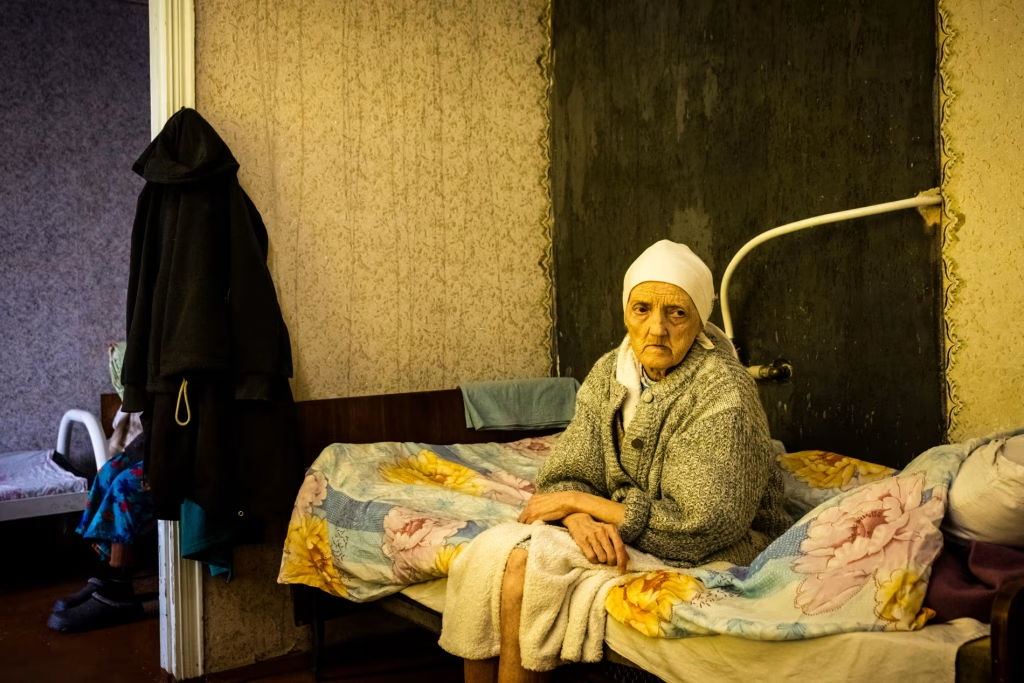
The Residents’ Stories
Resilience Amid Hardship
Eighty-four-year-old Yevhen Kryvoshey embodies resilience. Evacuated from the fiercely contested town of Izyum, he praised the nursing home’s staff, saying, “Your work and labor will stay with me for eternity.” Despite losing his dentures and cherished possessions during his journey, Kryvoshey remains optimistic.
Fragile Lives at Risk
Others face graver challenges. An 80-year-old man evacuated from Svitlodarsk has withered under the stress, refusing to eat for weeks. Similarly, 72-year-old Larysa Mochaleva’s physical and emotional scars highlight the devastating toll of the conflict. Her broken thigh and separation from her husband underscore the personal tragedies behind the statistics.
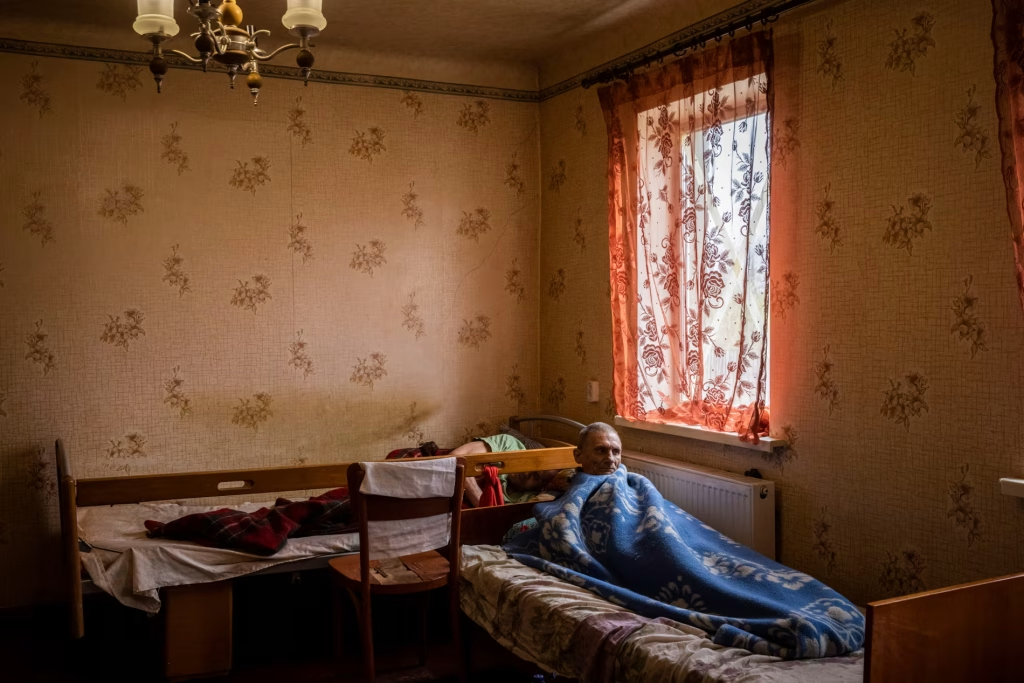
The Evacuation Challenge
A Community at Risk
The nursing home’s proximity to active conflict zones poses immense risks. “This lot will become a mass grave in a matter of days,” warns Tkachov, emphasizing the urgency of evacuation.
Limited State Support
Ukraine’s social welfare system offers little help. The state cares only for elderly individuals without relatives, leaving many residents reliant on charities like Proliska. Families often face emotional and legal barriers to sever ties, complicating state intervention.
The Broader Humanitarian Crisis
Displacement and Vulnerability
Since the war’s onset in 2014, countless elderly Ukrainians have been displaced. Initial aid from locals and international organizations has dwindled, leaving many stranded in unsafe areas.
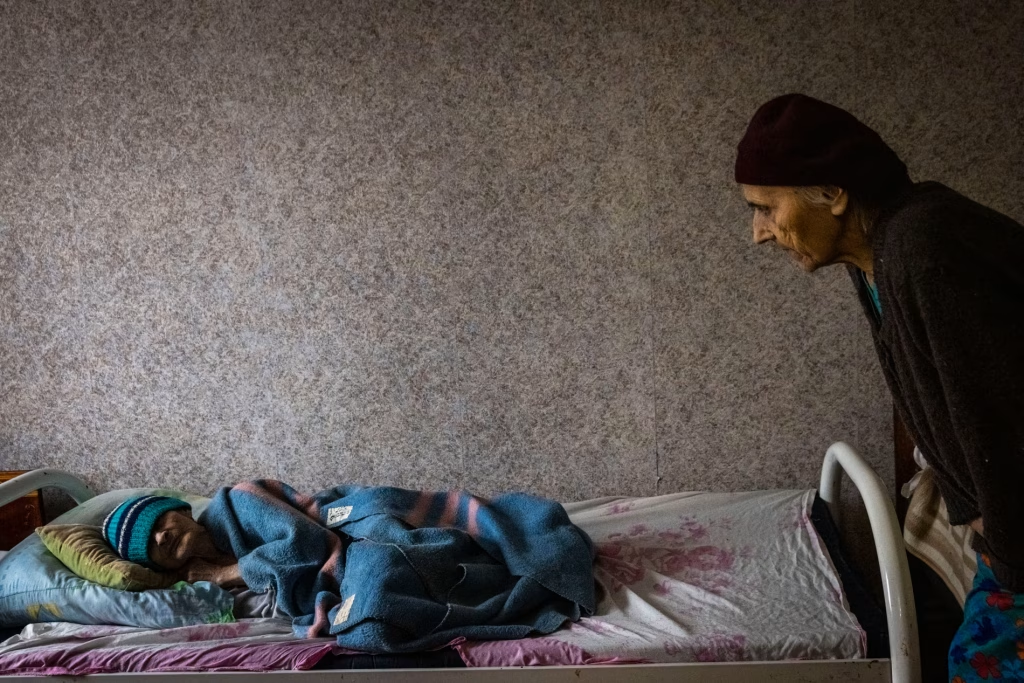
Regional Exodus
Over 70% of residents in towns like Kramatorsk and Slovyansk have fled. Those remaining are predominantly elderly, too immobile, or financially constrained to leave. Local leaders struggle to manage the exodus and ensure the safety of those left behind.

Stories of Separation and Reunion
Larysa Mochaleva’s story offers a glimmer of hope amid despair. Although she and her husband were separated during the evacuation, they were later reunited in Chasiv Yar. Their son plans to take them to safety, illustrating the resilience of familial bonds even in the face of war.
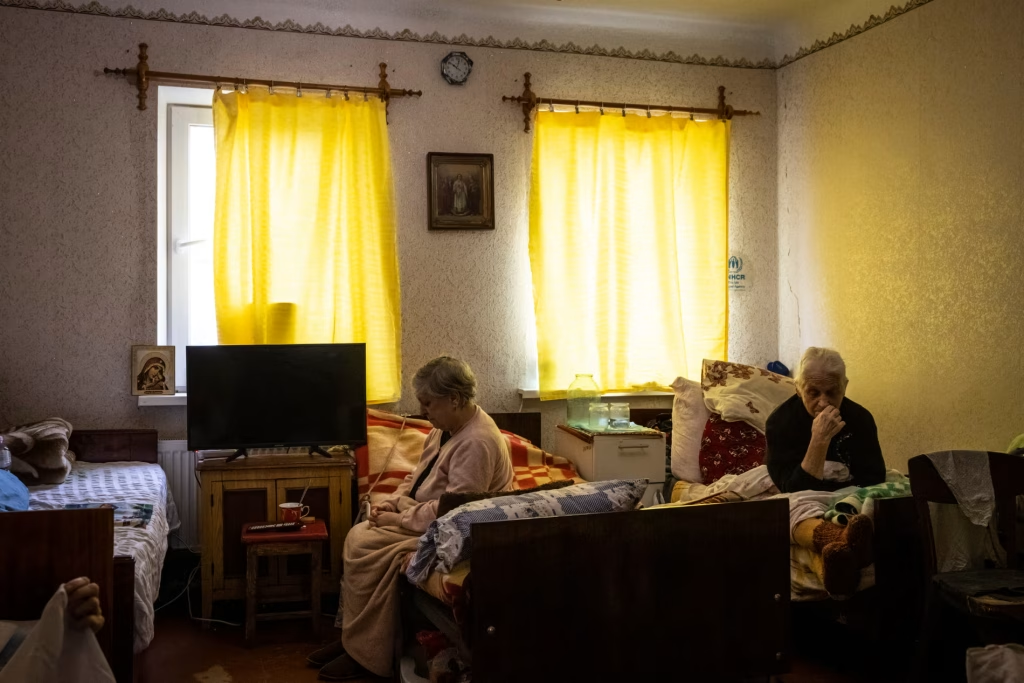
Growing Psychological Strain on Residents
Mental Health Challenges
The prolonged conflict has left many residents battling anxiety and depression. The constant fear of bombardment and the uncertainty about their future exacerbate existing mental health issues. Charitable organizations strive to provide psychological support, but resources remain scarce amidst the growing demand.
Dementia and War’s Toll
Residents with cognitive impairments face unique challenges as the chaos of war worsens symptoms like confusion and memory loss. Caregivers at the nursing home work tirelessly to provide stability, yet the lack of specialized medical facilities complicates their efforts.
Humanitarian Aid: A Critical Need
Role of International Organizations
International aid agencies, including the UNHCR, play a pivotal role in supporting the nursing home. Their contributions are invaluable, from providing food and medical supplies to facilitating evacuations. However, logistical hurdles and funding constraints hinder broader assistance.
Grassroots Efforts
Local volunteers and organizations complement international aid by addressing immediate needs. Their dedication ensures that the elderly receive meals, clothing, and companionship, offering a lifeline in an otherwise bleak environment.
Hope for a Safer Future
Evacuation Plans
Efforts to evacuate residents to western Ukraine are underway. These plans involve meticulous coordination to ensure the safety of bedridden and immobile individuals. Success depends on securing transport and overcoming bureaucratic barriers.
Rebuilding Lives
For many residents, evacuation marks the first step toward rebuilding their lives. While the path ahead is fraught with challenges, the promise of safety and reunion with loved ones inspires hope. Charities and aid organizations remain committed to helping them start anew.

Frequently Asked Questions
Why is evacuation critical for nursing home residents in Donbas?
Evacuation is vital due to the proximity of active conflict zones, which pose severe risks to the lives and well-being of elderly and immobile residents.
Who manages the nursing home in Chasiv Yar?
Ievhen Tkachov and his family manage the nursing home. They have been running charitable projects for vulnerable individuals in the Donetsk region for over a decade.
What is Proliska, and how does it support the nursing home?
Proliska is a network of charitable projects funded in part by the UNHCR. It provides food, medical supplies, and logistical support for evacuations.
How are residents coping with the ongoing conflict?
Many residents face physical and emotional challenges, including anxiety, depression, and the worsening of existing health conditions due to the stress of war.
What are the challenges in evacuating bedridden residents?
Evacuating bedridden residents requires careful coordination, specialized transport, and overcoming bureaucratic hurdles to ensure their safety.
Why are international organizations crucial in this crisis?
International organizations like the UNHCR provide essential resources, including food, medicine, and evacuation logistics, to support vulnerable populations in conflict zones.
What role do local volunteers play?
They complement the efforts of international aid organizations by addressing immediate needs, such as providing meals, clothing, and emotional support.
How has the war impacted mental health among residents?
The constant threat of violence and uncertainty has led to increased cases of anxiety, depression, and cognitive decline among residents.
What happens to residents after evacuation?
After evacuation, they relocated to safer areas in western Ukraine, where they can begin rebuilding their lives with the support of charities and families.
How can people help support the evacuation efforts?
Donations to international and local aid organizations can help provide critical resources for evacuation, medical care, and rebuilding efforts for displaced residents.
Conclusion
The plight of nursing home residents in Chasiv Yar underscores the dire need for humanitarian intervention. As the threat of conflict intensifies, immediate evacuation and long-term support are crucial to safeguarding these vulnerable lives. The world must not turn a blind eye to their suffering.

